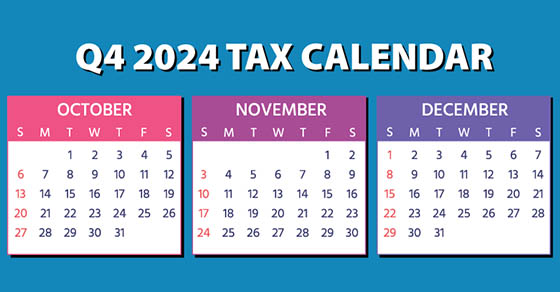Employers: In 2025, the Social Security wage base is going up
- ByPolk & Associates
- Oct, 23, 2024
- All News & Information
- Comments Off on Employers: In 2025, the Social Security wage base is going up
The Social Security Administration has announced that the wage base for computing Social Security tax will rise to $176,100 in 2025. This is up from $168,600 in 2024. (Believe it or not, it was just $3,000 from 1937–1950!) Wages and self-employment income above this amount aren’t subject to Social Security tax. The Federal Insurance Contributions Act imposes two taxes on employers, employees and self-employed workers. One is Social Security and the other is Medicare. A maximum amount of compensation is subject to the Social Security tax, but there’s no maximum for Medicare tax. For 2024 and 2025, the FICA tax rate for employers is 7.65% (6.2% for Social Security and 1.45% for Medicare).
Understanding your obligations: Does your business need to report employee health coverage?
- ByPolk & Associates
- Oct, 23, 2024
- All News & Information
- Comments Off on Understanding your obligations: Does your business need to report employee health coverage?
Certain employers are required to report information about employees’ health coverage. Is your business required to comply? “Applicable large employers” (ALEs) with 50 or more full-time employees must use Forms 1094-C and 1095-C to report information about offers of health coverage and enrollment in health coverage. Specifically, an ALE uses Form 1094-C to report each employee’s summary information and transmit Forms 1095-C to the IRS. A separate Form 1095-C is used to report information about each employee. In addition, 1094-C and 1095-C are used to determine whether an employer owes payments under the employer shared responsibility provisions (also referred to as the employer mandate).
Can homeowners deduct seller-paid points as the real estate market improves?
- ByPolk & Associates
- Oct, 23, 2024
- All News & Information
- Comments Off on Can homeowners deduct seller-paid points as the real estate market improves?
The recent drop in interest rates created a buzz in the real estate market. Potential homebuyers may now have an opportunity to attain their dreams of purchasing property. If you’re a homebuyer, you may wonder if you can deduct mortgage points paid on your behalf by the seller. The answer is “yes,” subject to some limits. For example, the rule allowing a deduction for seller-paid points doesn’t apply to points allocated to the part of a mortgage above $750,000 ($375,000 for marrieds filing separately) for tax years 2018 through 2025 (above $1 million for tax years before 2018 and after 2025). It also doesn’t apply to points on a loan used to improve a home or in certain other situations.
How businesses can better retain their salespeople
- ByPolk & Associates
- Oct, 23, 2024
- All News & Information
- Comments Off on How businesses can better retain their salespeople
In many businesses, the sales department tends to have a markedly higher turnover rate than other departments. If this has been the case at your company, don’t give up hope. There are ways to address the challenge. Begin with improvements to your hiring and onboarding processes. Welcome new salespeople warmly, provide ample training and consider appointing mentors to help them get comfortable. Of course, compensation matters as well. Carefully investigate the feasibility of retention bonuses and financial rewards for maintaining or increasing sales. Also, consider forming a sales leadership team that can contribute to strategic planning. Contact us for assistance.
Turnaround acquisitions are risky growth opportunities for today’s companies
- ByPolk & Associates
- Oct, 23, 2024
- All News & Information
- Comments Off on Turnaround acquisitions are risky growth opportunities for today’s companies
Have you ever considered growing your business by acquiring a struggling company? Although “turnaround acquisitions” can yield substantial rewards, they come with considerable risks. Look for a target with hidden value, such as untapped market potential, replaceable leadership or cuttable costs. Determine whether the return on investment will likely exceed the acquisition costs and risks. Don’t rush or let emotions cloud your judgment. Conduct due diligence to understand the target’s profit drivers and roadblocks, as well as its cash inflows and outflows. If you decide to proceed, pay close attention to the deal’s structure and tax impact. Contact us for further information and help.
Make year-end tax planning moves before it’s too late!
- ByPolk & Associates
- Sep, 25, 2024
- All News & Information
- Comments Off on Make year-end tax planning moves before it’s too late!
With the arrival of fall, it’s an ideal time to begin implementing strategies that could reduce your tax burden for both this year and next. One of the first planning steps is to ascertain whether you’ll take the standard deduction or itemize deductions for 2024. You may not itemize because of the high 2024 standard […]
2024 Q4 tax calendar: Key deadlines for businesses and other employers
- ByPolk & Associates
- Sep, 25, 2024
- All News & Information
- Comments Off on 2024 Q4 tax calendar: Key deadlines for businesses and other employers
Here are some important fourth quarter 2024 tax-filing dates for businesses. OCT 15: If you’re the owner or operator of a calendar-year C corp. which filed an extension, file a 2023 income tax return. OCT 31: Report income tax withholding and FICA taxes for Q3 2024 (unless you’re eligible for a Nov. 12 deadline because you deposited on time, and in full, all the associated taxes due). DEC 16: If a calendar-year C corp., pay the fourth installment of 2024 estimated income taxes. Note: Certain deadlines may be postponed in federally declared disaster areas. We can provide more information about filing requirements and ensure you’re meeting all applicable deadlines.
Businesses must stay on guard against invoice fraud
- ByPolk & Associates
- Sep, 25, 2024
- All News & Information
- Comments Off on Businesses must stay on guard against invoice fraud
Fraud is a problem for companies of all shapes and sizes. One criminal approach that seems to be thriving these days is invoice fraud. The most common type of this crime is fraudulent billing. For example, a real or fake vendor might send an invoice for goods or services that the business never received (and may not have ordered in the first place). There’s also overbilling, duplicate billing and employee collusion. Some best practices to consider include: 1) Verify the identity and legitimacy of every new supplier or vendor. 2) Implement a thorough approval process for employees to follow. 3) Leverage technology such as AI-driven optical character recognition. Contact us for assistance.
Is your home office a tax haven? Here are the rules for deductions
- ByPolk & Associates
- Sep, 25, 2024
- All News & Information
- Comments Off on Is your home office a tax haven? Here are the rules for deductions
If you’re a business owner working from home or an entrepreneur with a side gig, you may qualify for home office deductions. On the other hand, employees who work remotely can’t deduct home office expenses under current federal tax law. To be eligible for a deduction, you must use part of your home regularly and exclusively as your principal place of business, or a place to meet with customers, clients or patients in the normal course of business. Typically, the business use percentage is determined by your home office’s square footage, but other methods exist. We can address questions about the best way to compute home office deductions and the tax implications when you sell your home.
Help ensure your partnership or LLC complies with tax law
- ByPolk & Associates
- Sep, 25, 2024
- All News & Information
- Comments Off on Help ensure your partnership or LLC complies with tax law
When drafting partnership and LLC operating agreements, various tax issues must be addressed. This is also true of multi-member LLCs that are treated as partnerships for tax purposes. Here are some critical issues to include in your agreement so your business remains in compliance with federal tax law. Identify and describe guaranteed payments to partners […]











You must be logged in to post a comment.